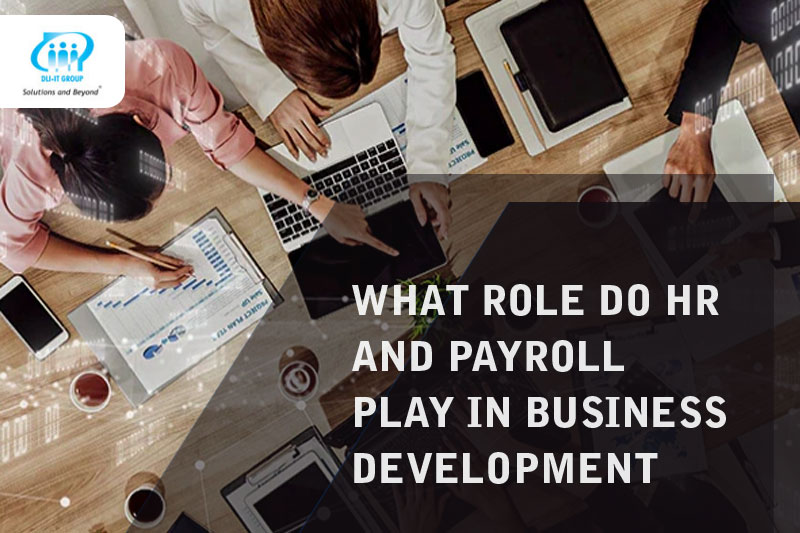The most important role human resources plays are taking care of employee relations. On the other hand, Payroll deals with the employee’s financial compensation and their payment processes. HR and Payroll have different responsibilities in a firm, but in certain cases, their functions overlap too.
Salary increases, recruitment, benefit deductions, bonus payments, sick leave, vacation leave, and termination are the areas that need both HR and Payroll software. Various situations call for the two departments to coordinate together to remain efficient.
To learn about the differences and similarities between HR and Payroll, this post will give you an overview.
Differences Between Each Department’s Responsibilities
One area where the joint efforts of both Payroll and HR will significantly improve is confidentiality. Both agencies can access private employee information such as Social Security numbers, financial details, and residential addresses. The two departments have a joint duty to prevent sensitive information from ending up in the hands of unauthorized individuals.
Payroll deals with employee compensation, and human resources handle employee relations. Even though the two departments play different responsibilities in a company, they also collaborate on tasks essential to its success. Integrating Payroll and human resources can lessen paperwork, enable automatic updating, and make it easier to provide consolidated information.
Human Resources
- Provides expert leadership to determine what to pay
- Determines the gross pay
- Assumes expert leadership for designing and implementing the compensation plan, including making sure stipend schedules are transparent, recorded, and applied uniformly across campuses and departments
- Acquires, evaluates, and inputs all stipend assignments
- Develops employee schedules
Payroll
- Determines net pay
- Processes transactions to disburse and account for payroll monies.
- Reconciles salary coding with a master budget.
- Processes pay in accordance with days worked for the designated work calendar
- calculates pay-offs for assignment changes, early resignations, or terminations
What is the Function of Payroll?
Payroll refers to the technique through which employees receive their pay. Its functions include depositing and reporting taxes. It also includes balancing and integrating the data on Payroll. The division in charge of payroll deductions also keeps records and ensures that payment information is accurate.
The payroll division completes paperwork for new hires, issues payroll checks, monitors tax compliance, and updates employee files. Calculating reimbursements, overtime, bonuses etc., is a job for payroll specialists.
What is the Function of HR?
The HR management software oversees personnel inside the company and maximizes employee potential to advance the organization’s goals. Hiring new personnel is the human resources department’s main duty, which comprises finding the best candidates for open positions. HR professionals need to confirm that new hires are meeting expectations after hiring them.
The HR department is also in charge of encouraging staff. To do this, they create compensation packages that may include pay increases and midyear or holiday bonuses. Additionally, HR creates training courses and ensures everyone is moving in the same general direction by reminding everyone of the organization’s objectives.
The Overlap
The HR and payroll software must collaborate well for an organization to function successfully. The HR division recruits the employees, which also sets them up on the system. After that, Payroll takes over, ensuring to handle all the facets of their payments.
Payroll and HR keep track of sick, vacation, and other leave balances. They forward the data to managers and supervisors, who are then in charge of efficiently organizing time-off requests.
Considering all the aspects together, the best feature of HR payroll is how to overcome the challenges of manual labor. Processing payroll is one of a company’s most difficult jobs. Both time and money are essential to conducting such tasks. One can save a lot of money by using an online payroll solution instead of directly hiring finance specialists and HR staff.
Since HRMS manages practically all areas of HR duties, this is true of almost every HR duty. When you utilize a payroll management system, it protects your data, and the possibility of losing something also minimizes because there is less paperwork to keep track of.
Compared to what you typically think, HR management software has a larger involvement in payroll management, which comes with added responsibilities. But why hire paid employees who can concentrate on other duties when they can carry out all these chores effortlessly by a system? The advancement your finance department wished for is payroll HRMS.
Since 1995, DLI-IT has focused on the HR industry and developed HR WORKS to assist HR Departments with automation that would relieve them of the tedious nature of back-office labor and allow them to concentrate on the HR potential of their enterprises. HR WORKS can manage various HR regulations, locations, and employee profiles.
